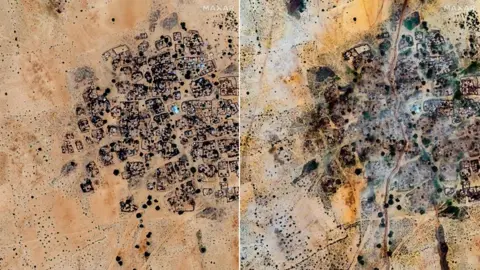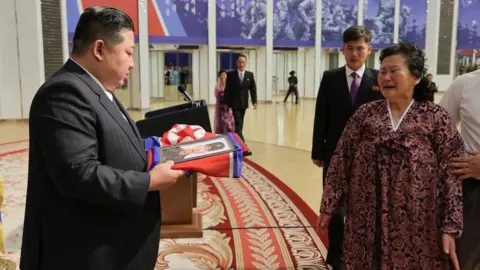As tensions soar at the border between Thailand and Cambodia, fatal clashes have ignited vigorous exchanges on social media, reflecting deeper nationalistic sentiments among citizens of both nations. With more than a dozen reported deaths this week, government officials are scrambling to avert a full-scale war, while the online arena becomes a hotspot for inflammatory rhetoric and accusations.
Historically, national pride has been a point of contention, with disputes ranging from the ownership of ancient temples to the cultural origins of food, dance, and sports. The narrative has intensified recently, where young users from both countries vigorously defend their government’s position online. With hashtags such as #CambodiaOpenedFire and "Thailand opened fire" trending, users are actively engaging in a digital duel, each side siding with its version of events.
The ongoing conflict has its roots in acute border tensions that escalated after a skirmish in May, resulting in a Cambodian soldier's death. Diplomatic relations have deteriorated significantly, prompting both nations to strengthen military presence along their borders and impose travel restrictions on one another. In response to the rising wave of hate speech, Cambodian and Thai journalists' associations have issued warnings about the unverified information circulating on social media, urging caution in sharing content that could escalate tensions further.
Incidents of offline violence have begun to surface, one of which involved a Thai individual attacking Cambodian workers while making nationalistic remarks. Wilaiwan Jongwilaikasaem, a journalism expert at Thammasat University, described the situation as a burgeoning "war of hate" fueled by nationalistic influencers.
Cultural disputes entwine with the latest developments. Historical grievances date back over a century, particularly regarding borders drawn during the French colonial period and significant ancient sites like the UNESCO-listed Preah Vihear temple. Both Thai and Cambodian nationalists have shared grievances about perceived cultural appropriation, especially regarding national heritage phenomena and sports, which have led to incidents like the Thai boycott of the Southeast Asian Games.
Political leaders on both sides are exacerbating tensions through their social media presence. Recently, Thaksin Shinawatra, the former Thai Prime Minister, alluded to military action against Cambodian Prime Minister Hun Sen amid rising frustrations due to a leaked phone call that sparked political embarrassment. In retaliation, Hun Sen accused Thaksin of betrayal and suggested that the tension was a politically motivated distraction.
While the geopolitical turmoils have drawn international attention, the pulse of the conflict remains intensely personal and pervasive on social media, indicating that the rivalry may persist well beyond military engagements. As Cambodians call for a ceasefire, the digital dialogue signifies an ongoing battle that threads through the societal fabric of both nations, posing challenges for diplomats seeking peace.



















